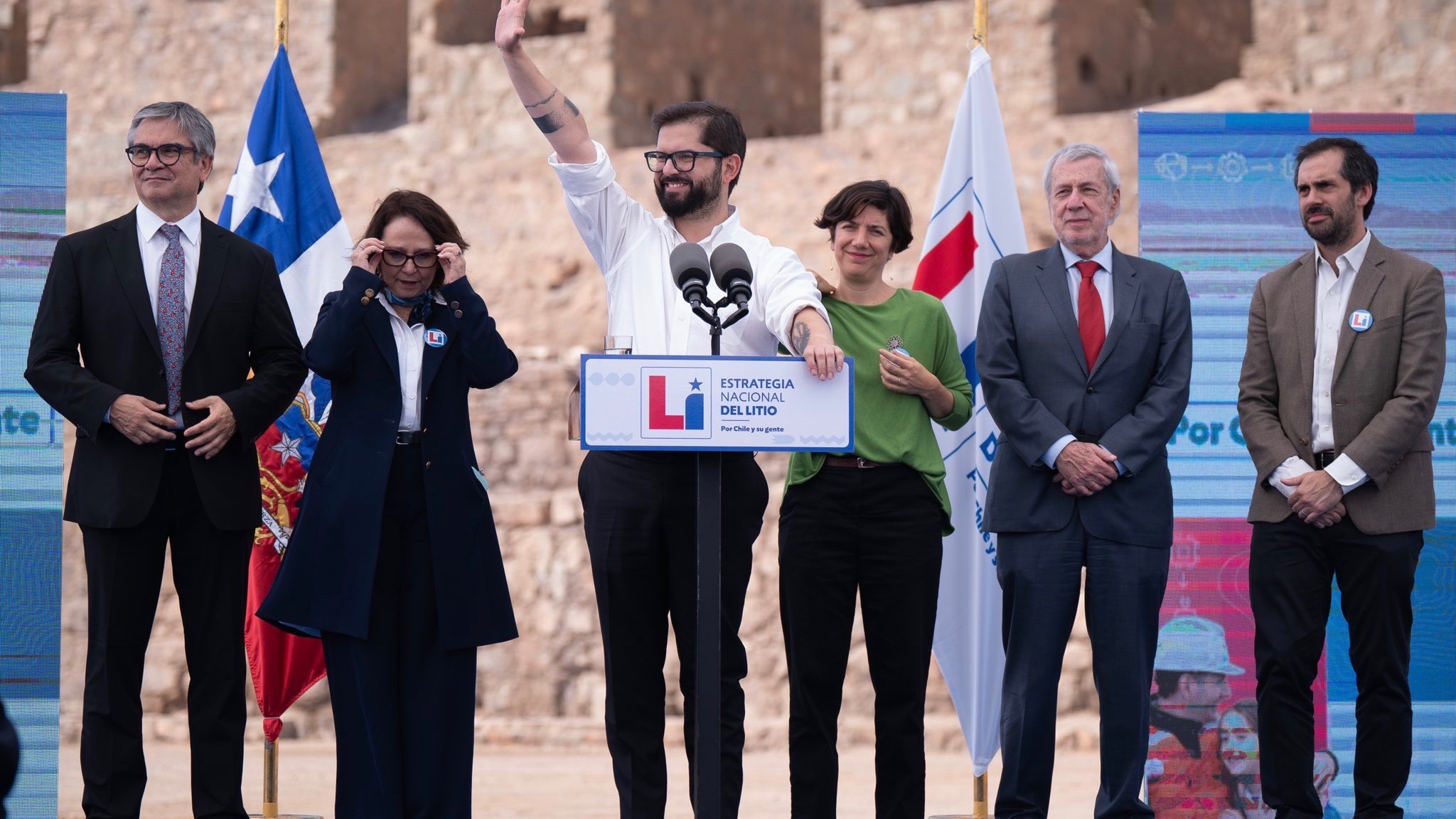Chile’s President Gabriel Boric, in a televised address to the nation on Thursday, April 20, announced his plan to nationalize the country’s lithium industry to boost the economy and protect the environment.
“Chile has one of the largest lithium reserves in the world. It is a mineral that, being in electric bus and car batteries, is key in the fight against the climate crisis, against climate change. It is an opportunity for economic growth that will be difficult to beat in the short term. Together with the development of green hydrogen, it is the best chance we have at transitioning to a sustainable and developed economy. We can’t afford to waste it,” said President Boric.
He said that his national lithium policy includes the creation of a state-owned company, which would eventually take control of the country’s lithium mining sector from private industry giants. In this regard, he added that future lithium contracts would only be issued as public-private partnerships, with full state control. He also said that the government would not terminate current contracts, and hoped that companies would be open to state participation before the contracts expire.
The head of state added that the plan includes encouraging the use of new technologies to minimize the impacts of mining on ecosystems and promote research through a salt flat protection network. For this purpose, he announced that a National Institute of Lithium and Salt Lakes would be created.
President Boric said that future lithium exploration would be undertaken with the participation of all Indigenous communities residing near the extraction zones and reliant on local water basins for their livelihoods. He also said that his plan not only promotes extraction and conservation, but also encourages generation of lithium products in the country. The plan will be presented to the Congress in the second half of the year.
“We will send a bill to create the National Lithium Company to Congress. It will look for partners to develop value-adding projects. This implies making an additional effort to not only extract raw materials, but to convert them into new products with high technological value. We can do it in Chile,” he said.
“Our challenge is for our country to become the world’s leading lithium producer, thus increasing its wealth and development, distributing it fairly while protecting the biodiversity of the salt flats,” he said.
Chile has one of the world’s largest lithium reserves and is the world’s second largest producer of the metal after Australia. Albemarle and SQM, the world’s no.1 and no.2 lithium producers, respectively, are the two companies that currently hold licenses for lithium exploration, mining, and exploitation in the Atacama salt flat in the north of Chile. SQM’s contract is set to expire in 2030, and Albemarle’s in 2043.
Lithium is in high demand worldwide for the manufacture of batteries. Its demand is predicted to increase as much as 40-fold by 2040 due to the global energy transition. Latin America will play a key role in this shift. According to the United Nations Development Programme (UNDP), the region is home to an estimated 60% of the identified lithium reserves globally, with Bolivia, Argentina, Chile, Mexico, Peru, and Brazil accounting for some of the largest reserves.
AHORA | Presidente @GabrielBoric presenta la Estrategia Nacional del Litio desde Antofagasta. #LitioPorChile https://t.co/HFJliIKTXR
— Presidencia de Chile (@Presidencia_cl) April 21, 2023





